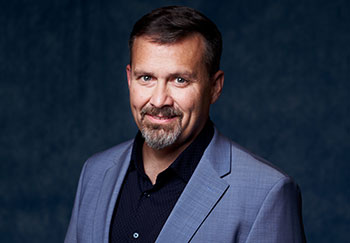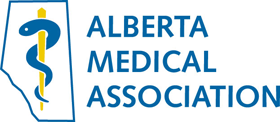We are your voice
November 3, 2023

Dear Members,
Yesterday afternoon, mid-way through my provincial Local Doctors, Local Issues tour, I held a news conference to broadcast what members have told me about changes needed in our health care system. I have provided my speaking notes below in this letter and a few links to early news coverage.
As I wrote to you on Monday, there has been a lot of media interest in the tour, and it’s been a great opportunity for me to be a megaphone for members. Albertans need to understand what is happening and government needs to act. This is essential for us to retain our family physicians, improve hospital services and improve health outcomes for Albertans.
Our advocacy has been extremely active through the past weeks, and we will continue to be relentless. Government is listening and we will keep their attention focused on needed reforms. A promise has been made to the profession to work collaboratively toward solutions in time for the 2024 provincial budget. There is no time to waste.
You can reach me anytime at president@albertadoctors.org. You can also comment on this letter on the AMA website.
Regards,
Paul Parks
President, Alberta Medical Association
News Conference
Thursday, November 2, 2023
1 p.m.
By Zoom
Sample News Coverage:
Speaking Notes:
Good afternoon and thank you for being here. I know it’s a busy week with the Legislature opening.
I am on a provincial tour to meet with doctors about their local issues with running their practices and caring for their patients. So far, I’ve been to Edmonton, Calgary, Red Deer and Grande Prairie. I still have stops ahead in Fort McMurray, Lethbridge and my hometown of Medicine Hat.
I’m only half-way through the tour at this point – and I really didn’t anticipate having a media availability until the tour was through. But, as I’ve been listening to doctors in the community and in hospitals, as I’ve visited clinics and primary care network sites, emergency departments and hospital wards, I am hearing significant and very consistent concerns.
Our system is in difficulty in two different areas.
First, we continue to have a crisis in family medicine.
Too many Albertans do not have access to comprehensive care from family physicians and rural generalists. The health care system has simply not kept pace in terms of the framework that’s needed to support longitudinal care. When we say, “longitudinal care,” we mean the highly specialized care these physicians provide that guides a patient through all the changing needs of a lifetime. Our compensation model does not support this type of care and many practices are simply no longer financially viable.
We have been talking about the family medicine crisis for many months. What’s become increasingly clear during the same period -- and during my provincial tour -- is that there is ongoing need for reforms to acute, hospital specialist care.
As an emergency physician, I am keenly aware of ongoing signs of deterioration. Patients in every hospital in this province are experiencing access block because of lack of service capacity and workforce challenges. Our population is growing faster than any other province – which is great news for the economy. But our health care infrastructure is not keeping up at the same time as we are living through a global shortage of health care professionals.
Some of the issues that physicians are reporting include:
- A lack of specialty hospital coverage for inpatient and emergency care.
- Workload across the board has increased to where it is not sustainable.
- Specialist programs are looking at “capping” admissions to protect patients and staff.
- Everyone is concerned about the equitable sharing of scarce resources for patient care. The most common issues are the availability of staffing support such as nurses and other allied health care professionals, and of physicians in-hospital.
The common element here is the shortage of health human resources. We are in a national competition – actually a global competition – for health care workers. We have to compete for every physician and health care professional who is looking for a place to live and work.
In a labour market like this, retention is critically important. We are losing our competitive position and that makes retention very challenging.
I want to commend Minister LaGrange for the open engagement we are having on these issues. Her ministry seems ready and willing to roll up their sleeves and work with the AMA to improve health care.
On the community family medicine and rural side of things, the Memorandum of Understanding that the minister and I signed October 28 commits the parties to work together regarding a longitudinal family practice physician compensation model. To be effective, that model must reflect family physicians’ and rural generalists’ extensive training, experience and leadership in primary health care. And we have put forward proposals that will help us recruit and retain doctors who will otherwise find other jurisdictions much more attractive.
Minister LaGrange has stated that she will work with AMA leadership on long-term solutions – but also on stabilization of the practices that are in trouble right now. This work is underway right now and will be a key and relentless focus between now and February when the provincial budget is introduced.
The MOU covers both short- and long-term needs and it is a promise that we are relying on. We have to:
- Stabilize our existing practices so that it is possible to retain the amazing physicians we have today. No reform of primary care is possible if the constituent clinics and practices are not there to be the backbone of the system.
- Return Alberta to being the competitive choice that we used to be, when it comes to attracting new physicians to this province and keeping them here.
- Develop payment models to enable us to support Albertans throughout their lives.
For the strained hospital system, some of the pressures will be alleviated through stabilizing community family medicine. Strong community-based primary physician care means fewer patients going to the hospital. It means patients coming out of the hospital have someone to care for them.
I am discussing these matters with the minister. The AMA is advocating for physician-developed solutions because physicians are at the front lines and in community.
I will keep you all informed as we hear from physicians during the tour and thereafter.
Thanks again for making time to be here today.

No comments
Commenting on this page is closed.